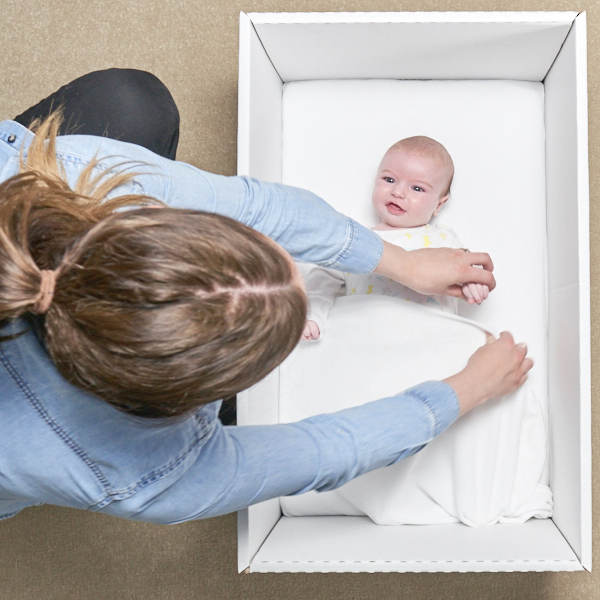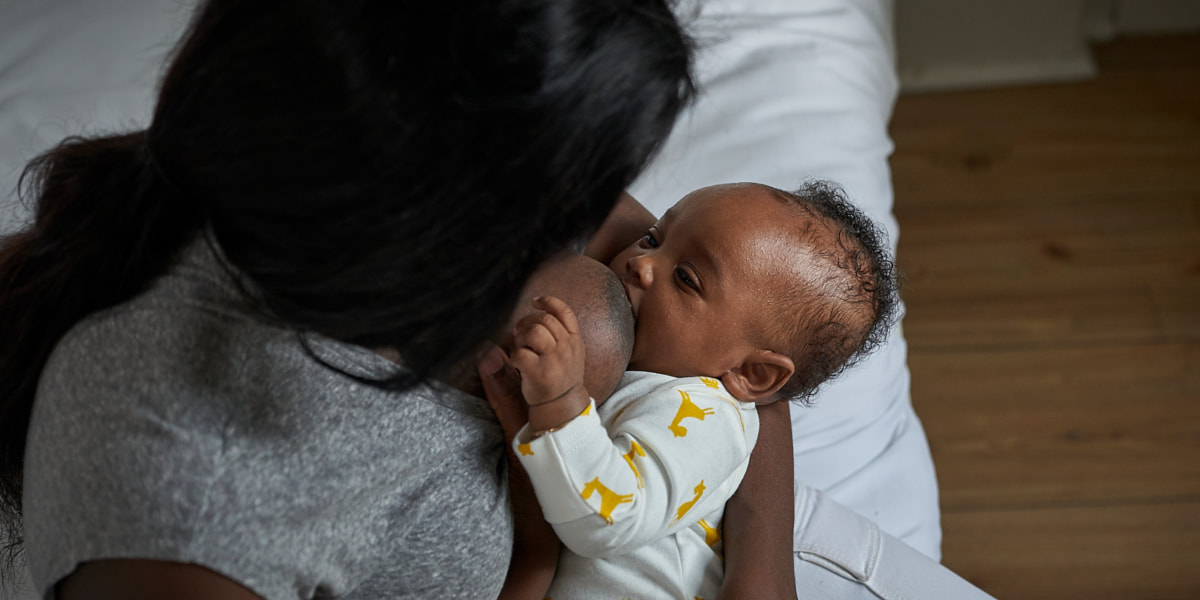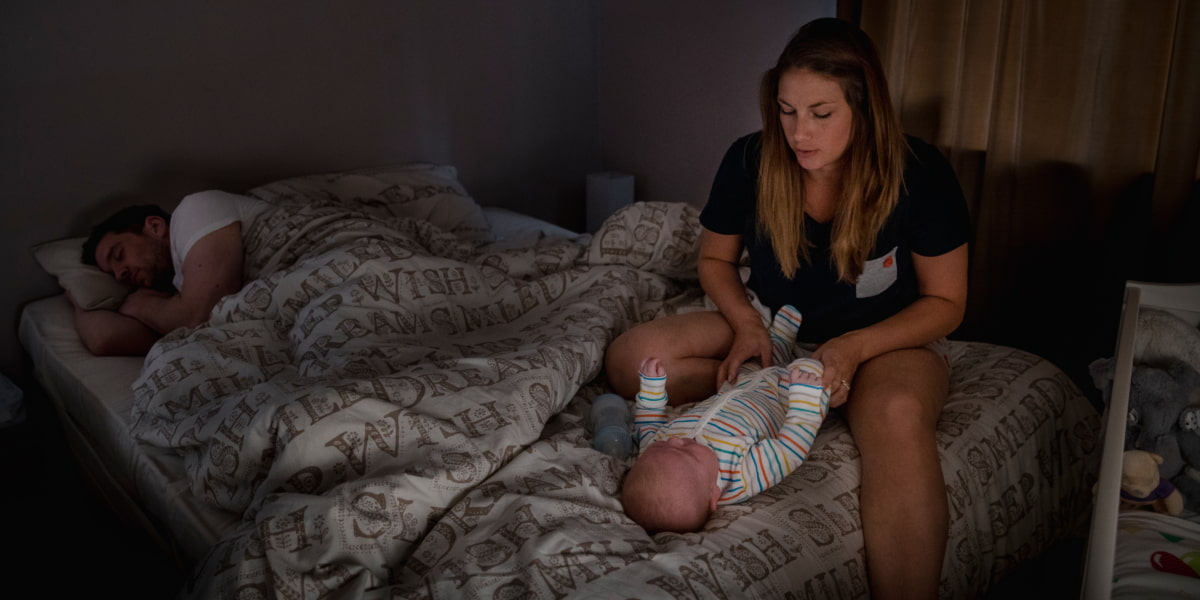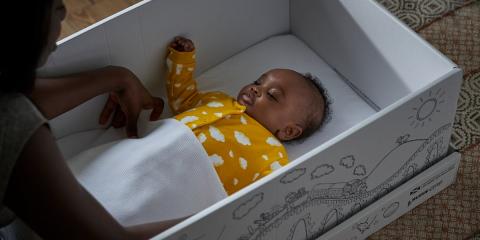All babies are different. There is no perfect amount that a baby should sleep and as your baby grows older the amount they sleep changes. It can even change from week to week. Coping with sleep is the hardest part for many new parents, so remember you’re not alone!
When do babies start to sleep through the night?
Don’t worry if your baby is up a lot during the night. Most babies wake during the night and many won’t regularly sleep through until they’re a year old. Newborns can sleep up to 18 hours a day and will slowly need less sleep as they get older. Read our guide to baby sleep length to learn more.
What to do if your baby keeps waking in the night
You could be doing everything right and your baby might still be up every 45 minutes. Babies wake up for lots of reasons. They could be too hot or cold. There could be sudden noises. They could be teething. They could even be going through a growth spurt, but sometimes there will be no obvious reason why.
Most babies don’t know how to settle themselves yet, so when they wake up they may need to be comforted by you. Here are some tips to help you help them.
Tip #1: Tucking in

They might wake up because they are stuck in their bedding. Tuck them in properly to stop this happening with blankets across their chest and under their arms, making sure their head is uncovered. Always put them feet first at the bottom of the cot so they can’t wriggle down and get caught under the blankets. Remember to check how hot your baby is by touching their neck or their tummy, if they are sweating they are too hot and you should remove blankets. You can find out more about safe sleeping on the NHS inform website.
Tip #2: Teething issues
If your baby wakes up because they are teething, try and rub their gums with a clean finger. You could also leave a teething ring in the fridge and let them chew on this. Using barrier cream can also help with teething.
Tip #3: Sharing a room
Your baby should sleep in your room for the first few months. They will be comforted being closer to you at night and you can respond to their needs better. Sharing a room also reduces the risk of SIDS.
Tip #4: Extra feed

During a growth spurt it might feel like your baby wants to feed all the time. An extra feed before bed might stop them waking up hungry for a while.
Tip #5: Make your room sleep ready
Keeping your room dark and quiet will help your baby sleep. If you live somewhere with a lot of noise outside, a noise machine can help drown out unwanted sounds. Just make sure that it is not on too loud or placed too near to your baby’s head as it could damage their hearing.
What the professionals say
“Remember that babies’ sleep development has lots of ups and downs. Typically babies will start sleeping for a bit longer at night, and then resume night waking just when you think you’re past the worst. You haven’t done anything wrong, and there is nothing wrong with your baby. Sleep development like many other things tends to happen in bursts.”
More information
Ready Steady Baby has lots of information on helping your baby sleep and establishing routines. If you think your baby is not settling at night because of a health issue, contact your GP or health visitor for additional support.
Sleep problems
If you’re worried about your baby or child’s sleep, remember, you’re not alone – there is support out there, starting with your GP or health visitor. The following organisations can also help:
Cry-sis offer help and support to parents with babies who cry excessively or have sleeping problems. They have a helpline you can call on 0800 448 0737.
Sleep Action offer advice and support to parents and carers, or to young people themselves, for any child aged 18 months to 18 years with a sleep problem. Visit the Sleep Action website to find out more and get in touch.
Twins Trust have advice on sleep if you have twins, triplets or more.
 Activities & Play
Activities & Play Behaviour
Behaviour Childcare
Childcare Development & Growing Up
Development & Growing Up Family, Friends & Relationships
Family, Friends & Relationships Feeding Your Baby
Feeding Your Baby Food & Eating
Food & Eating Health & Safety
Health & Safety Mental Health & Wellbeing
Mental Health & Wellbeing Money & Work
Money & Work Online Behaviour & Safety
Online Behaviour & Safety Pregnancy & First Days
Pregnancy & First Days School & Education
School & Education Sleep
Sleep








 Mental Health & Wellbeing
Mental Health & Wellbeing
 Health & Safety
Health & Safety